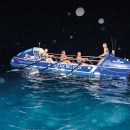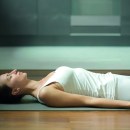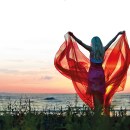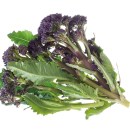How much drinking is too much?
Women in their twenties and thirties are becoming anxious about levels of social drinking. But how does it feel to take a break from the bubbly? By Zoe Strimpel
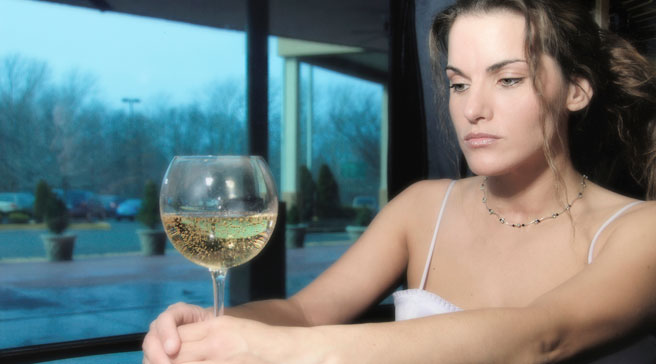
When did drinking become compulsory? Every social occasion seems to revolve around alcohol, and not just at Christmas. Drink is aggressively marketed at women; there is wine on offer in galleries, cinemas, even the gym. The question is no longer tea or coffee, but glass or bottle?
In the social sphere, there is pressure to drink. ‘We’ve been trained that alcohol is the thing that’s going to make us feel better,’ says Georgia Foster, author of The Drink Less Mind. ‘If you’re using it as a way to be more confident, or to relax at the end of the day, taking that away will create anxiety. And the more you drink, the tolerance creeps up and you need more to get that same feeling of calm or confidence.’
So when does a social habit become a problem – and what can we do to cut down? ‘If you want to know if you have a problem with alcohol, observe how you drink,’ says Emma Baskerville, director of Surrey Psychotherapy and Counselling. ‘Do you drink quickly to get the effects? Do you find excuses to have a glass of wine? What would it be like not to drink for two weeks?’
Moira Plant, an academic researcher on women and alcohol, suggests keeping a drinking diary for two to three weeks. ‘Every evening, jot down what you’ve drunk,’ she says. ‘Check how many days you’re drinking, your weekly total, and ask yourself if you’re drinking above the government guidelines. This gives you your peak dose, total consumption and the number of days you’re drinking. It also tells you where you were and who you were with when you drank too much. Then you can change your behaviour. This will give you a sense of empowerment.’
Armed with this knowledge, it’s time to embark on my own drinking diary, which I keep for the next two weeks.
Sunday
At a wedding yesterday and ate and drank like a machine. That is, joylessly. Today, I don’t want to get up for a very long time. It feels like gravel’s been thrown on glue behind my eyes. So it’s a good day to start two weeks off the booze – hangovers are inspiring – and as I lie immobile I look forward to not feeling like this. Eventually, I make it to the post-wedding picnic where everyone is knocking back hair-of-the-dog prosecco. I contemplate a drink – after all, we are by a swimming pool in Florence – but then think, ‘No. Just no.’ Stick to wedding cake and water.
Monday
At about 4pm I get hit by the urge for a glass of wine. Not just ‘a drink’ – but a glass of ice-cold chardonnay from Burgundy. I’m going to see my brother and his fiancée at my grandpa’s tonight – none of them really drinks – and I think, ‘Maybe I’ll stop for a glass of wine on the way.’ It’s not like me to have such urges so soon after a boozy weekend – I sometimes go days (well, two or three) without wanting a drink. I allow myself to think of the options, plan how I’ll have my glass, and then let it pass with a firm ‘No, Zoe’.
Tuesday
Feeling fairly clear-headed – slept well, went for a swim. Once again, around 4pm, I start thinking about later – will there be wine involved?It’s my brother’s birthday. Small family gathering, then dinner out. I would usually turn up with prosecco, but it gets late and in the end I just come with a card – nobody drinks much in my family and there’s tea.Again, the itch passes and neither my brother nor his fiancée wants wine. To me, the table looks naked without a bottle and glasses – like something is missing that’s essential to a good time. I feel a pang when we order, as if I’m letting the waitress down.Once home I feel tired and crawl into bed, but don’t sleep well.
Wednesday
Feel exhausted all day. So tired, in fact, I don’t even feel like drinking: just coffee and Diet Coke. So when I head for dinner with a colleague, I assume I won’t be tempted. But suddenly I have a second wind. As soon as we meet I force myself to say, ‘I’m not drinking.’ But as Caroline orders a glass of pinotage – my favourite – I get a stab of doubt. I actually call the waiter back, then feel I must just let it go. Do I get any pressure from Caroline? At first she says, ‘Not at all?’ and when I hurry to explain (of course one must explain) she merely says, ‘You’re so good.’ The pressure, on this occasion, mostly came from me.
Thursday
I feel awake and good. But tonight I have a box at the Albert Hall and my friend Tom is bringing prosecco. It sounds so lovely, such a part of the scene, that I can’t bring myself to tell him not to bother. I feel that it would be a major downer for him and for me. For the first time, I fail. It’s all so fitting, I give in and have half a bottle. Then feel guilty, weak and woozy. Also worried: do I have a problem? Friday Family drama going on, and so sleeplessness plus prosecco ensure I feel rotten this morning. All I can think about is getting through the day, then bed. I’m also stressed as I have to wake up at 5am tomorrow for a flight to Geneva. Anyway, I am persuaded to meet a friend after work – she gets an Old Fashioned and tries to tempt me, but I stick to sparkling water.
Saturday
As predicted, I’m thoroughly sleep-deprived. Making our way by train to Gstaad, it’s beautiful, but for now I can only think about coffee. The view from our hotel balcony takes our breath away. Soon we’re imagining what alcoholic beverage will go well with it, but somehow we’re distracted with air-biking, a tour, coffee and cake, and then it’s time for a concert and the moment passes. Over dinner, Tom’s on red wine, but I order sparkling water, after a ludicrous wrestling match with myself.
Sunday
Beautiful weather: this is a day for health. So up a mountain we go (in a cable car), and are offered lunch – with beer – in the clean alpine air. I stick to Coke Zero, feeling smug and clear-headed. And then guilty for eating gruyère and fried egg on fried potato. Later, at dinner, I badly want some red wine to go with my veal sausage, and Tom orders a bottle. I pour some and thus begins another struggle between mouth, hand and brain. I have a third of a glass, find it makes me instantly sleepy, and leave it.
Monday
After a sunlit lunch – at which the PR manager ordered sparkling wine and a bottle of malbec, which I decline (I don’t generally enjoy daytime drinking) – it’s plain sailing home. Coffee and water all the way.
Tuesday
Still tired from the weekend. After yoga, I’m done for the evening.
Wednesday
I’ve gone so long without drinking now and finally I’ve caught up on my sleep. The world spins around me, people are calling for champagne and gagging for pints and I’m watching it all from the sidelines. But today I’m meeting a great friend after work and I would love a bottle of red wine. She feels the same and we head to a wine bar – her suggestion. I feel faint with my inner battle and concern that I’ve deceived her about my intentions. She’s so up for it, I’m so up for it… but then, all in a rush, I say, ‘I have something awful to say, I can’t drink tonight.’ Like other friends, she expresses good-humoured shock, then denial, then acceptance – and sees it as a good excuse for her not to drink. So we settle into a less animated conversation than we might have had, and go home at a sensible hour. I sort of wish we’d got drunk together…
Thursday
That I walked away from last night without a sip makes me feel like I’ve completed a marathon. I strut to work and have a productive day. Tonight, everyone’s out for work drinks and, on a roll, I stick to sparkling water.
Friday
Off to Liverpool for a girly night out with my PR friend. Plenty of chances to drink copiously and I’m not looking forward to it as much I normally would, knowing it’s going to be a parade of refusal. But then something lucky (in a way) happens: I start to feel sick on the train and can’t stomach the idea of booze anyway.
Saturday
By the end of my day in Liverpool I am zonked and notice that the desire to top off the evening – a Saturday, no less – with a glass or two of malbec seems to have dissolved. I imagine a different evening ahead: a swim, a salad, TV, bed. And I make it so.
Sunday
So busy today that I don’t have time to think about whether I want a drink later. It’s the gym, a visit to my grandpa, phone calls and work. And food. How do I feel after two weeks of not drinking? Well, energetic and productive. When I look in the mirror, my eyes seem wider and the whites whiter. Probably, I feel ‘normal’ in a way I haven’t let myself feel in years.
ANALYSIS:
Georgia Foster, director of the Drink Less Mind programme says: 'You can read in Zoe’s words that socially alcohol is part of her life and it is assumed (by herself and those around her) that she will drink at social and work occasions. Zoe’s struggle not to drink is driven by social and emotional conditioning that has been learned over years. For many people alcohol is a way of connecting with family and friends as well as a way to relax and unwind. Many people are shy and use alcohol as way to communicate better. Zoe struggled because her mind associated social occasions with alcohol. However, over the two weeks you can see this conditioning start to change. Doing one thing differently can be a challenge. As Zoe continued to have alcohol-free days, her mind gradually became accustomed to not drinking and she enjoyed the healthier her. If she continues to drink less, her alcohol consumption will naturally reduce and the habit of drinking less will become normal.'



